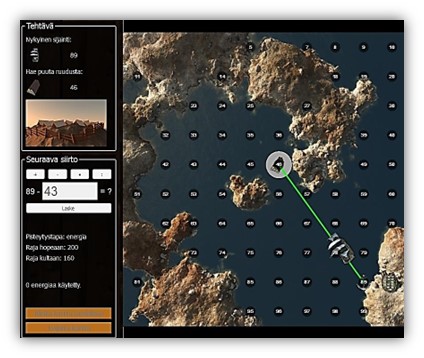Mathematical game performance as an indicator of deliberate practice
DOI:
https://doi.org/10.17083/ijsg.v10i4.634Keywords:
Mathematics, Game Analytics, Digital Game-Based Learning, Deliberate Practice, Flow, Adaptive Number KnowledgeAbstract
The traditional classroom setting presents challenges when it comes to strengthening adaptive expertise in mathematics education through deliberate practice. This study aimed to investigate whether the Number Navigation Game (NNG) could help promote deliberate practice, and whether students’ performance in the game was related to their development of Adaptive Number Knowledge, perceived challenge, flow, and math interest. NNG is a game-based learning environment that requires students to progress by solving increasingly complex arithmetic problems, which is crucial for promoting adaptive number knowledge. Game performances of 214 Finnish students were analyzed and compared to the best possible performance for each game level. A growth mixture model based on the students' relative performance levels was used to gain insight into how students' game performance changed throughout the game, and how this related to their knowledge gains, perceived challenge, math motivation, and flow. There were four different profiles of students' game performance. The largest profile consisted of students who steadily improved their performance in the game, despite initially having lower-than-average performance. This group experienced lower levels of flow but achieved larger learning gains than the other groups, suggesting that their engagement may be more aligned with deliberate practice.

Downloads
Published
Issue
Section
License
Copyright (c) 2023 Jake McMullen, Phuong Bui, Boglárka Brezovszky, Erno Lehtinen, Minna M. Hannula-Sormunen

This work is licensed under a Creative Commons Attribution-NonCommercial-NoDerivatives 4.0 International License.
IJSG copyright information is provided here.